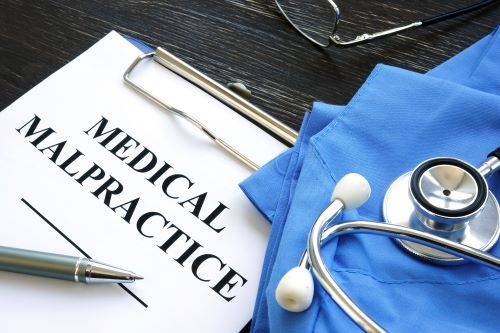Misdiagnosis & Medical Negligence Law: What You Should Know
Medical negligence is a grave concern that affects numerous individuals worldwide. Within the broader scope of medical malpractice, misdiagnosis emerges as a significant issue that can lead to severe consequences for patients.
This article will explore the complex world of medical negligence law. We will focus on misdiagnosis, its implications, and the options available to individuals who have been harmed by negligent or inattentive medical professionals.
Understanding Medical Negligence and Misdiagnosis
Medical negligence, which falls under the umbrella of medical malpractice, occurs when healthcare professionals deviate from the standard of care expected in their field and thereby harm the patient. Misdiagnosis is a specific form of medical negligence in which a healthcare provider fails to diagnose a medical condition accurately or provides an incorrect diagnosis. This type of malpractice tends not to be malicious.
Misdiagnosis can stem from various factors, including inadequate examination, misinterpretation of test results, failure to order necessary tests or simply human error. Regardless of the cause, the consequences can be severe, leading to delayed or inappropriate treatment, worsening of the patient’s condition, and sometimes irreversible harm.
Legal Implications of Misdiagnosis
When a patient is misdiagnosed, they may have legal recourse under medical negligence law. To establish a case of medical negligence, the plaintiff must generally prove four key elements: the healthcare provider’s duty, any breach of that duty, the causation of harm, and the damages accrued.
In simple terms, this means that the plaintiff and their lawyer must prove that the healthcare provider owed a duty of care to the patient, generally through an agreement to treat a patient who has asked for assistance or treatment. Once this is proven, they must show that the provider failed to meet the standard of care expected of them in the medical field, thus breaching that duty of care and that duty caused direct harm or injury to the patient.
Once harm is established, one must draw up a list of quantifiable damages, both bodily and financial, that came about specifically due to the stated medical negligence. In the context of misdiagnosis, proving each of these elements can be a complex process, with the need for many things like expert testimony, a showcase of medical records, and a thorough understanding of the specific circumstances surrounding the case. Misdiagnosis as a legally liable branch of medical negligence is uniquely challenging to prove, as all four of the key elements we named above must be provable and verifiable.
Jurisdictions seem to be more receptive towards claims explicitly based on the idea of informed consent, where an individual thought themselves to be informed when giving consent but later found that they were unaware of the specific risks associated with a medical procedure or prescribed drug. The medical professionals who may find themselves guilty of medical malpractice and misdiagnosis include physicians, surgeons, psychiatrists, and dentists, but can also include nurses, midwives, medical assistants, and a wide range of allied health professionals.
Those who claim to be particularly skilled or specialists will find themselves operating under a higher duty of care based on the acceptable skill level and the idea of informed consent.
Options for Individuals Facing Misdiagnosis
When facing a misdiagnosis, seeking a second opinion from another healthcare professional is often the first step. Different perspectives may provide alternative diagnoses that better fit or alleviate the pain and symptoms of the previous errors. Often, a misdiagnosis can be remedied with a second opinion, and no further steps must be taken.
Complaints can be filed with the relevant medical board for individuals who believe they have experienced medical negligence past repair of a second opinion. While this might not result in immediate compensation, it can prompt investigations and any necessary disciplinary actions against the healthcare provider. If the wronged individual and the healthcare provider cannot reach an agreement, it may be necessary to file a lawsuit.
Before resorting to a lawsuit, any parties involved may opt for negotiations or mediation to settle the matter outside of court, which can be quicker and less adversarial. Though maliciousness should not be assumed or unassumed, an unintentional but clearly harmful misdiagnosis may find restitution early during these negotiations.
If negotiations fail, individuals may pursue a medical malpractice lawsuit with the help of the experts at Warren Allen Attorneys at Law. If necessary, this process would involve filing a complaint against the responsible healthcare provider or any governing board and seeking compensation for damages such as medical expenses, lost wages, and pain and suffering.
It is important to find out and keep in mind the statute of limitations, which will vary by jurisdiction or state. Failing to file a lawsuit within the allotted time frame may bar you or the injured individual from seeking compensation for damages, either caused or perceived.
In a successful medical malpractice lawsuit related to misdiagnosis and medical negligence, compensation may be awarded to the plaintiff for a variety of damages. These include reimbursement for medical bills associated with the misdiagnosis and subsequent treatment, any compensation for income lost due to the inability to work caused by the misdiagnosis, and any pain and suffering caused or experienced throughout the misdiagnosis. Damages can be awarded for the physical and emotional distress experienced as a result of the misdiagnosis. If it leads to long-term consequences, compensation may cover future medical expenses.
Misdiagnosis is a distressing experience that can have profound implications for an individual’s health and well-being. Understanding one’s rights and options within the framework of medical negligence law is crucial when seeking justice and compensation for the harm caused by a healthcare provider’s negligence. By knowing the available legal avenues and utilizing the resources of accomplished law firms like our team here at Warren Allen LLP, individuals can navigate the complex terrain of medical malpractice and work towards holding accountable those responsible for misdiagnosis. Call us, and let us walk you through the process of filing your medical negligence case.

